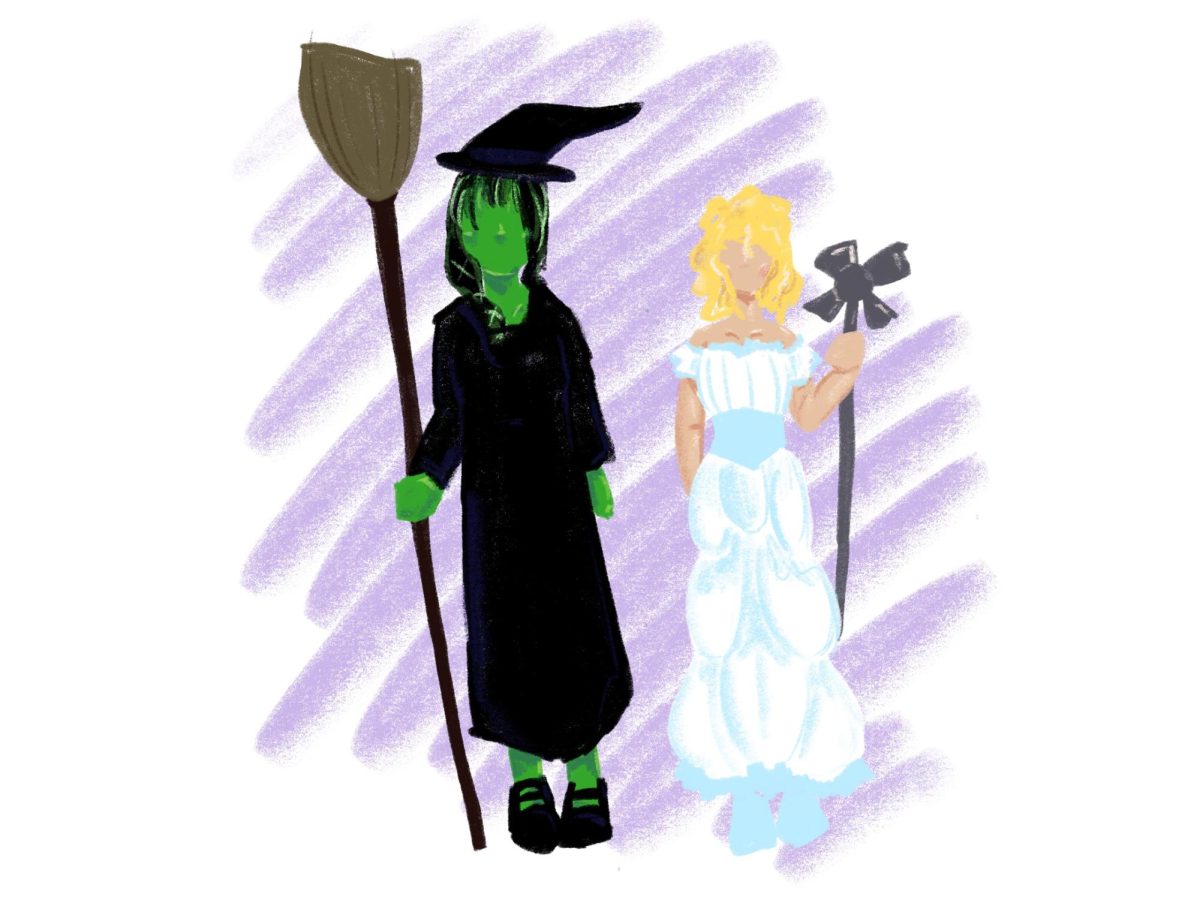The Pledge of Allegiance: South students on standing or sitting
March 12, 2023
When the Pledge of Allegiance is broadcasted over the intercom during the second period every morning, Glenbard South students have different instinct reactions.
Some bound up out of their seats, eagerly reciting the Pledge alongside the announcement. Others get up, but silently mouth the words. A few stand solemnly, mouths closed but standing nonetheless. Many sit silently in their seats, rummaging through their bags or prodding their iPads.
But why do South students stand or not stand for the pledge of allegiance?
After interviewing a South AP Government teacher and conducting an anonymous survey of 100 students, there are multiple reasons why.
An AP Government Teacher’s Thoughts
Mr. William Hiles, an AP U.S. History and AP Government and Politics teacher at Glenbard South, witnesses differin reactions from students in his second period AP Government class every morning when the pledge of allegiance is broadcasted over the intercom at 8:25 am.
Hiles believes that students’ responses to the Pledge of Allegiance fall into different categories: religious purposes, apathy, protestual or comfort level.
He said, “I think a category holds those who maybe believe especially that the country is not holding up to those values and they don’t feel comfortable pledging allegiance to that country without any other sort of caveats.”
Hiles connected this to the line, ‘liberty and justice for all’ within the Pledge.
He thought the main reason some students don’t stand for or recite the pledge is typically that they believe that America does not provide ‘liberty and justice for all’.
“…They refuse to say the pledge as a form of protest against the systemic injustice that they stand against.” Hiles elaborated that students may not stand for or recite the pledge due to their religious reasons or their lack of religion as well.
He continued about students not saying the pledge as a method of protest.
“There’s sort of like that, that protest element to it…where it’s not valued, so why would I do this on a daily basis? It’s lost its value to me. It’d be like a fake pledge, I’d be saying something they don’t really believe in.”
He finished his thought by explaining his thoughts on students’ aloofness towards the pledge.
“Then there’s a third category that is just apathy. Like, I don’t feel like standing. I’m tired… It’s the second period. It’s in the morning and I’m tired. I don’t feel like standing everyday to do this!”
Students: Standing or Sitting?
Glenbard South students have vastly differing opinions on standing or sitting during the Pledge of Allegiance, which they expressed in an anonymous survey.
One senior student expressed that he stood to honor fallen soldiers that fought for his freedom. He went on, “Oftentimes, especially when I took AP U.S. History, I would think of the bravery of our country’s fighting men in various historical events.”
Others expressed their blatant uncomfort with standing for the pledge of allegiance.
“When the pledge plays, I always think about how the majority of other countries don’t require that students listen to or recite a national pledge every day. From that perspective, saying it or standing for it feels odd and unnatural. I almost feel like I’m being indoctrinated into a cult.” one sophomore voiced.
Another group of students explained that they don’t stand or say the pledge of allegiance due to America not upholding the values the Pledge promises.
One student said, “…it feels immoral to support the political climate and decisions that have been made in the nation past and present. I acknowledge the privilege that allows me to even be able to voice my opinion on this very matter, but I also acknowledge the pain and hardship that today many Americans face, even within school grounds, so I decide not to stand.”
Another junior added, “Sometimes it depends on the day and the current events occurring in our country which make it pertinent for me not to stand. For example, I don’t stand as a show against police brutality, against gun regulation not being properly enforced and the increase in school shootings this past year, and the religious bias present in the pledge.”
On the other hand, many students voiced that they do stand to honor the values the Pledge vocalizes, even if they’re not occurring today.
Elaborating on this, one student stated, “I stand because I respect my country. I believe that America is inherently based upon good values, specifically those mentioned in the pledge – solidarity, indivisibility, liberty, and justice for all – and I want to express my support for the execution of these values.”
Another student rebutted, “I don’t stand for it because its value that it used to stand for doesn’t exist anymore. I don’t have a purpose to stand for it.”
Currently, the state of Illinois requires that the Pledge of Allegiance be broadcasted in every public school. However, the 1943 Supreme Court Case West Virginia Board of Education v. Barnette expressed that public education should “not strangle the free mind at its source [or] teach youth to discount important principles of our government as mere platitudes.” , establishing the notion that students possess the rights of the First Amendment and can choose whether to sit or stand for the Pledge of Allegiance.































